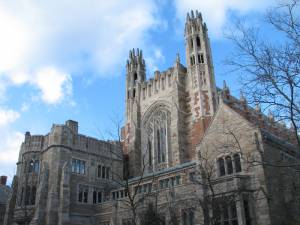The field of constitutional law is a cornerstone of legal education in the United States. It’s all about the study and interpretation of the U.S. Constitution — the foundational legal document of the nation.
This branch of law deals with critical issues such as the separation of powers, the rights and liberties of individuals, the roles of governmental entities – and the balance between federal and state authority.
Understanding constitutional law is essential not only for practicing attorneys but also for anyone involved in public policy, academia, or the broader legal profession, as it shapes the framework within which all other laws operate.
Pursuing an LL.M. with a focus on constitutional law offers a unique opportunity for lawyers to deepen their knowledge and expertise in this fundamental area.
An LL.M. in constitutional law is designed for those who have already earned a J.D. degree or its equivalent and wish to gain advanced training and specialization.
And this advanced degree can open doors to a variety of prestigious career paths, including high-level legal practice, influential academic positions, and significant roles in public policy and government. Graduates are well-equipped to contribute to important legal debates, influence policy decisions, and engage in meaningful legal reform.
This editorial list highlights 10 of the best LL.M. programs in the U.S.A. that specialize in constitutional law. These programs have been carefully selected based on several key criteria to ensure they represent the highest standards of legal education. These factories include the law school’s reputation, faculty, courses and research opportunities. Also, how successful alumni have been and practical experiences as well.

Yale Law is renowned for its influential faculty. The school offers numerous courses and seminars in constitutional law, providing students with a deep understanding of the subject. The faculty includes leading constitutional law scholars who contribute significantly to legal scholarship and public discourse. Yale’s Global Constitutionalism Seminar, among other initiatives, provides good learning opportunities in constitutional law, enabling students to engage in discussions with leading experts in the field.

Harvard Law boasts an extensive curriculum in constitutional law. The faculty includes distinguished scholars and practitioners who bring a wealth of knowledge and experience to the classroom. Harvard offers numerous clinics and research centers which provide LL.M. students with practical experience and opportunities to engage in impactful legal research. The school’s global reputation and extensive alumni network enhance the educational experience.

Located in California, Stanford offers a rich array of courses in constitutional law, supported by the Constitutional Law Center. The LL.M. program stresses interdisciplinary approaches, allowing students to explore the intersections between law, politics, technology and society. Stanford’s faculty includes prominent constitutional law scholars who are actively involved in legal reform and public policy. The school’s LL.M. places a sharp emphasis on practical experience.

Located in New York City, Columbia provides a comprehensive LL.M. program with a strong focus on constitutional law. The school’s curriculum includes a wide range of courses that cover various aspects of constitutional theory and practice. Columbia’s Center for Constitutional Governance and other initiatives offer LL.M. students ample research opportunities, enabling them to contribute to policy debates. The school’s location in one of the world’s major legal and financial centers provides additional opportunities for professional development and networking.

Chicago Law is renowned for its strong LL.M. program, and the school offers significant contributions to constitutional law, with a faculty that includes leading thinkers in the field. The law school’s various journals, such as the University of Chicago Law Review, provide platforms for student research and publication with regards to constitutional law issues. The school’s intellectual environment encourages critical thinking and innovative approaches to constitutional law.

NYU Law has extensive LL.M. courses in constitutional law and is home to the Brennan Center for Justice, which focuses on democracy and justice issues, providing students with practical and research opportunities that address some of the most pressing constitutional questions of our time. NYU’s faculty includes scholars and practitioners who bring real-world experience to their teaching. The school’s location in a global legal hub provides students with numerous opportunities for internships, clerkships and networking.

Virginia School of Law in Charlottesville offers a robust curriculum in constitutional law. The school is known for its collegial environment and strong emphasis on public service. The Center for the Study of Race and Law – and the Program in Law and Public Service – provide students with opportunities to engage in research in constitutional law. UVA Law’s faculty includes leading constitutional law scholars as well.

Located in Washington, D.C., Georgetown offers unique opportunities for studying constitutional law in the context of the nation’s capital. The school’s curriculum includes a wide range of courses that cover all aspects of constitutional law. Georgetown’s Supreme Court Institute provides students with hands-on experience in Supreme Court litigation, while other programs offer opportunities to engage with policymakers and legal practitioners. The faculty includes leading experts in constitutional law who are actively involved in legal reform and advocacy.

Berkeley Law’s LL.M. has a strong focus on constitutional law within its curriculum. The school’s faculty includes renowned scholars who contribute to national and international legal debates. Berkeley Law’s various centers, such as the Berkeley Center for Law and Technology, provide interdisciplinary research opportunities that explore the impact of technology on constitutional issues. The school’s commitment to public interest law and social justice helps with preparing students to address complex legal challenges related to constitutional questions.

Michigan Law School offers a rich selection of courses in constitutional law. The school’s faculty includes leading scholars who engage in influential research and teaching. Michigan Law’s Center for International and Comparative Law explores global perspectives on constitutional issues, providing students with a solid understanding of constitutional law in different contexts. The school’s supportive community and strong emphasis on academic excellence also make it stand out.


-c19f8.png)






